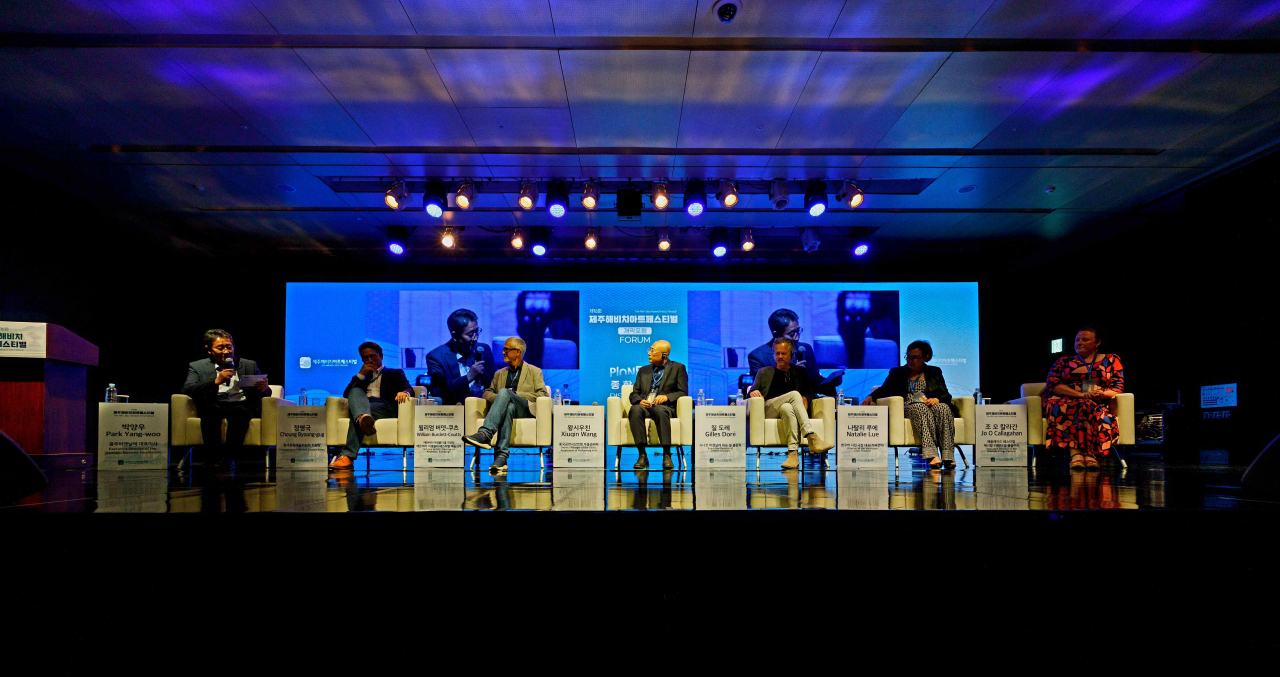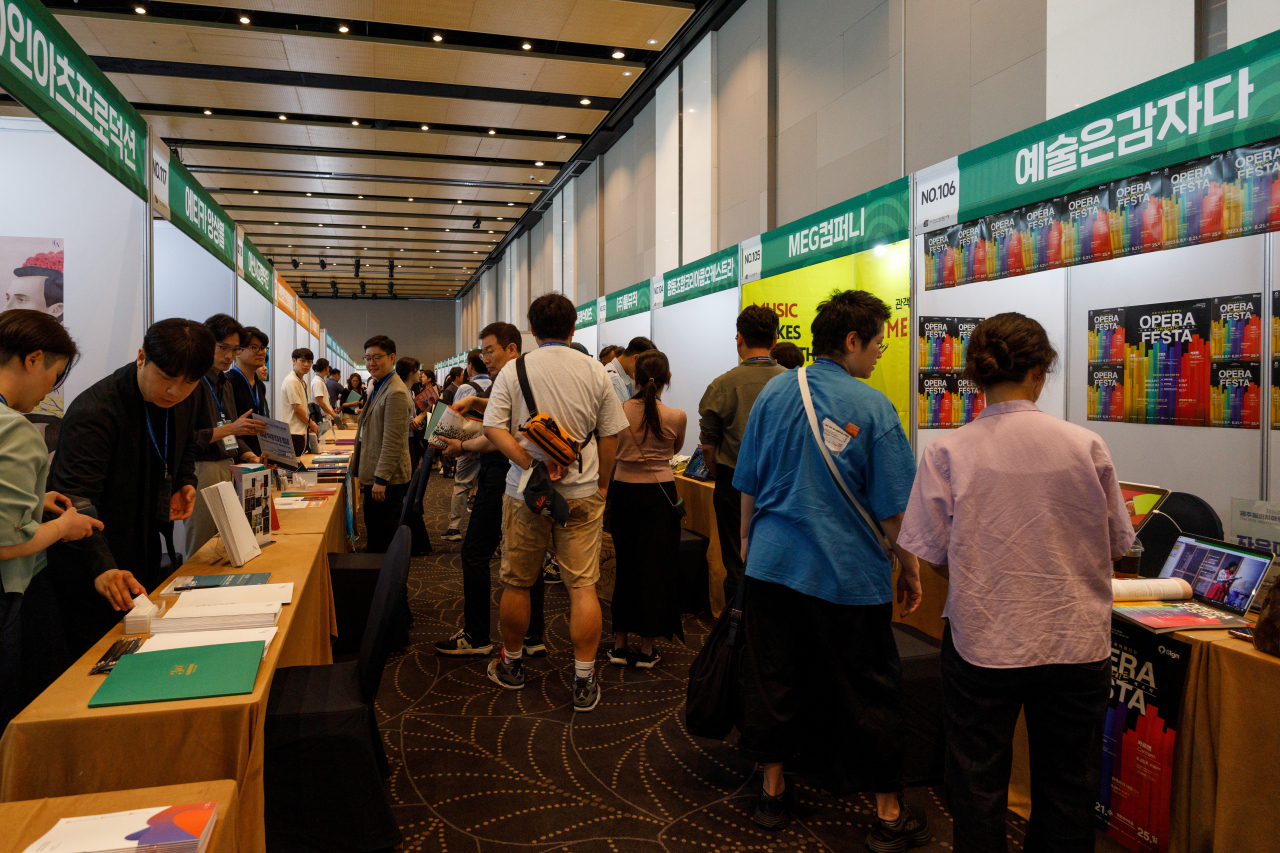Jeju Haevichi Arts Festival gathers domestic, international performing arts experts
By Park Ga-youngPublished : June 13, 2023 - 17:06

JEJU ISLAND - The 16th Jeju Haevichi Festival, which aims to connect South Korean cultural and arts institutions with performing arts productions, kicked off Monday at the Haevichi Hotel & Resort on Jeju Island, with an opening forum themed “Pioneer.”
The annual event is co-organized by the Korea Culture and Arts Centers Association and Jeju Island government.
Four speakers -- Choung Byoung-gug, chairman of the state-run Arts Council Korea, William Burdett-Coutts, founder and director of Assembly, Wang Xiuqin, deputy manager of the China Association of Performing Arts, and Gilles Dore, executive director of CINARS Biennale -- took to the stage to speak at the forum on “Facilitating cultural exchange between domestic and international performance venues and exploring new markets.”
Choung, a former cultural minister, told the audience that rural areas of South Korea face the risk of disappearing due to a dwindling population and the outflow of residents, and that culture and arts can help address the issue.
“We have to gather wisdom to solve the issue of regional extinction through fair distribution of opportunities for cultural enjoyment,” Choung said.
Burdett-Coutts of Assembly, one of the major venue operators at Scotland's Edinburgh Festival Fringe, said that for international audiences, works that are not based on language are more expandable.
“In the age of Netflix, people have not really got the capacity to sit reading subtitles while listening to a foreign language. So it tends to focus on physical works like magic or dance that are more accessible without a language barrier,” he said, citing the nonverbal show “Jump” as a good example of a piece that was introduced at the Edinburgh Festival Fringe and gained opportunities to tour around the world.
Wang, deputy manager of CAPA, predicted that China’s performing arts industry will soon become the largest market in the world thanks to its growing middle class and a growing appetite there for performing arts.
For instance, in contrast from Tokyo and Seoul, Shanghai has a significantly lower ratio of its urban population to performing arts venues, according to Wang. Tokyo, with a population of some 14 million, has 898 performing arts venues, while Seoul with 10 million people has 477 such venues. In comparison, Shanghai, with a population of 24 million, only has 250 performing arts venues.
Wang hinted that the musical industry, in particular, offers great opportunities for Korean companies. “Chinese musical productions take the Korea model. In addition to Shanghai, which has become a popular market (for Korean companies) other cities like Beijing, Chengdu and Guangzhou are opening up many spaces and they will open for China-Korea collaboration,” he added.
During the four-day event -- the largest in its history -- stakeholders in the performing arts industry such as officials of regional cultural centers, domestic and international art organizations, performance planning agencies, cultural arts-related institutions and equipment companies related to performance venues gathered for showcases, seminars and networking events.





![[KH Explains] No more 'Michael' at Kakao Games](http://res.heraldm.com/phpwas/restmb_idxmake.php?idx=644&simg=/content/image/2024/04/28/20240428050183_0.jpg&u=20240428180321)














